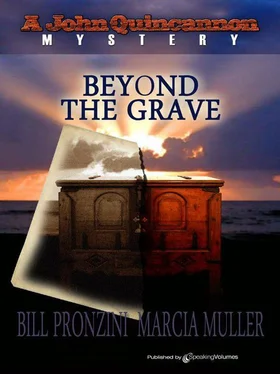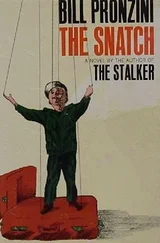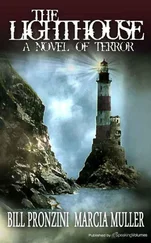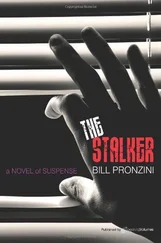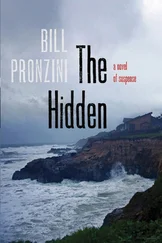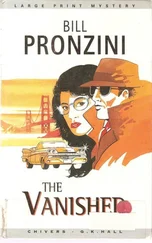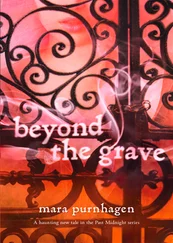Bill Pronzini - Beyond the Grave
Здесь есть возможность читать онлайн «Bill Pronzini - Beyond the Grave» весь текст электронной книги совершенно бесплатно (целиком полную версию без сокращений). В некоторых случаях можно слушать аудио, скачать через торрент в формате fb2 и присутствует краткое содержание. Год выпуска: 2011, ISBN: 2011, Издательство: Speaking volumes, Жанр: Исторический детектив, на английском языке. Описание произведения, (предисловие) а так же отзывы посетителей доступны на портале библиотеки ЛибКат.
- Название:Beyond the Grave
- Автор:
- Издательство:Speaking volumes
- Жанр:
- Год:2011
- ISBN:9781612321202
- Рейтинг книги:4 / 5. Голосов: 1
-
Избранное:Добавить в избранное
- Отзывы:
-
Ваша оценка:
- 80
- 1
- 2
- 3
- 4
- 5
Beyond the Grave: краткое содержание, описание и аннотация
Предлагаем к чтению аннотацию, описание, краткое содержание или предисловие (зависит от того, что написал сам автор книги «Beyond the Grave»). Если вы не нашли необходимую информацию о книге — напишите в комментариях, мы постараемся отыскать её.
Beyond the Grave — читать онлайн бесплатно полную книгу (весь текст) целиком
Ниже представлен текст книги, разбитый по страницам. Система сохранения места последней прочитанной страницы, позволяет с удобством читать онлайн бесплатно книгу «Beyond the Grave», без необходимости каждый раз заново искать на чём Вы остановились. Поставьте закладку, и сможете в любой момент перейти на страницу, на которой закончили чтение.
Интервал:
Закладка:
“Whose?”
“The Mex storekeeper's.”
“Who knows? Don't matter-he ain't got no more of them statues, that's for certain.”
“Too bad for Jimmy, then, if he's still on the hog.”
“He ain't. He blew wise to a pretty lay down south.”
“Is that where he is now?”
Witherspoon's good humor evaporated. “I ain't sayin'. You still after him?”
“Not anymore,” Quincannon said. He moved to the claybank, swung himself into the saddle. “When you see him tell him Duff's in the market for the right booty.”
“I'll do that. You headin' back to Frisco, Boggs?”
Quincannon said, “Tomorrow, with any luck. Let me give you some advice, Ollie: Never spark a stubborn widow, especially in the spring. It can be damned frustrating.” He rode off, leaving Witherspoon once more engaged in the monumental task of trying to produce thought inside a peanut shell.
Chief Vandermeer was gone from the police station when Quincannon paid his second call of the afternoon. Constable Ogilvy, however, was still on duty and as obliging as he had been earlier. He reexamined the local theft reports for the previous six months, and much to Quincannon's relief, found one filed on October 6, 1893, by a man named Luis Cordova who owned a dry-goods store on Canon Perdido Street and who lived in quarters above it. A gold statue of the Virgin Mary did not appear on the brief list of items stolen, nor did any other kind of statue, religious artifact, or valuable.
“Peculiar, ain't it, Mr. Boggs?” Ogilvy said. “This fellow Cordova lives poor in the Mexican quarter, so what was he doing with an expensive gold statue? And why didn't he report it stolen?”
“Why, indeed?” Quincannon said, and went to find out.
TWO
The neighborhood in which Luis Cordova lived and worked was a poor one, as both Witherspoon and Ogilvy had indicated; but it was not without its pride or its zest for life. There was a good deal of activity along Canon Perdido Street, a good deal of animated conversation flavored with laughter. Inside a cantina someone was playing a guitar with enthusiasm; Quincannon recognized the liquid rhythms of “ Cielilo Lindo ” as he passed. The spicy scent of frijoles and simmering taco meat floated on the balmy spring air, reminding him that he had not eaten since breakfast.
He dismounted in front of Luis Cordova's dry-goods store and looped the claybank's reins around the tie rail. The building, of wood and adobe, with an upstairs front gallery, was situated at the end of a mixed block of private dwellings and similar small businesses-a harness shop, a feed store, a shabby tonsorial parlor, a greengrocer's. An outside stairway led up along the east wall, giving access to Cordova's upstairs living quarters; a huge olive tree effectively concealed the upper half of the stairs from the street, an arrangement to tempt the black soul of any housebreaker. The westside wall faced on an intersecting street; it was open now and a buckboard had been drawn up near it. Two young men were busily unloading bolts of brightly colored cloth and carrying them into a rear storeroom. Neither man was Luis Cordova; Senor Cordova, Quincannon was told when he approached them, could be found at the front of the shop.
He entered through the front door and was greeted by the not-unpleasant odors of dust, cloth, lye soap, and oiled leather. The interior was well-stocked with a variety of goods, among them simple clothing for men, women, and children, boots and huaraches and high-top shoes, serapes, rebozos, textiles of different types. In the middle of all this, a thin gray-haired man of indeterminate age was having a spirited argument with a fat woman over an inexpensive black mantilla. The woman, as near as Quincannon could tell with his limited command of Spanish, was upset over the fact that the brand-new mantilla had torn the first time she put it on; she wanted it replaced. The man kept insisting that the mantilla had not been damaged at the time of its sale, that he always inspected each item for defects before allowing it to leave the premises.
The argument raged for another five minutes, with neither side gaining an advantage. Finally the fat woman threw up her hands, told the gray-haired man that she would never again buy so much as a button from him, told him further that he was an hijo de garanon -son of a jackass-and stormed out. Quincannon smiled at her as she passed, and tipped his hat; he received a milk-curdling glower in return.
The gray-haired man sighed elaborately, as if such altercations offended his sense of propriety. Then he dusted his hands together and moved to where Quincannon waited. If he was surprised to find a gringo in his store, and a gringo who resembled a pirate at that, he gave no indication of it. He said, “ Buenos tardes , senor. I may help you?”
“If you are Luis Cordova, you may.”
“ Si . Yes, I am.”
“I'd like a word with you about the burglary you suffered six months ago.”
“ Que pasa? My English, it is not so good. Burglary?”
Quincannon rummaged through his Spanish lexicon and said haltingly, “Robo con escado. Soy aqui a discutir un ladron que escala una casa.”
“Ah, si, si .” Interest brightened Cordova's swarthy features, but it was outweighed by an odd sort of apprehension. “You are from the policial
“I represent a man who now possesses one of the items stolen from you,” Quincannon said in Spanish.
“What item is that, senor?”
“A gold statue of the Virgin Mary.”
Cordova winced as if he had been struck. He backed up a step, put out a defensive hand, and said anxiously, “There must be some mistake, senor. I know nothing of such a statue.”
“It was sculpted by Francisco Portola for Don Esteban Velasquez in 1843. These words and date are engraved in the base.”
“I have never seen such a statue.”
“It was stolen from your rooms.”
“No, senor. No …”
“A man named James Evans has admitted stealing it from you,” Quincannon lied. “In the face of this, do you still deny possessing it?”
Cordova backed up several more steps, shaking his head violently. Fear glistened in his dark eyes; the sweat of it beaded his forehead. Its cause, Quincannon thought, was something profound, to affect the man this way.
He pursued Cordova until the storekeeper's retreat was stayed. by a low wooden counter. Then he said with as much portent as he could muster in his halting Spanish, “The rightful owner of the: statue is the family of Don Esteban Velasquez in Santa Ynez Valley. It is now in the hands of Felipe Velasquez, Don Esteban's son; he is the man I represent. Are you aware of the statue's history, Senor Cordova?”
Cordova kept shaking his head. His mouth quivered open, but he didn't speak.
“It is one of many artifacts hidden by Don Esteban in 1846, during the war with Mexico. It is the only one that has been found since. Perhaps you know the whereabouts of the others?”
“No, I know nothing …”
“How did the statue come into your possession?”
“Please, senor…”
“Did you steal it? Are you a thief?”
“ Madre de Dios! No, no …”
“Then how did you come to have it?”
“I did not have it, I have never seen such a statue, I know nothing about Don Esteban Velasquez, nothing!” The words burst out of him in a spray of spittle, his voice rising on each one until the last few were a shout. He twisted away to one side, almost upsetting a table stacked with rough-cloth peasant shirts; swung around and pointed a trembling finger at Quincannon. “Go away! Leave my place of business! You are not policia ; you have no right to remain here without permission. Leave, or I will have you put out by force!”
Читать дальшеИнтервал:
Закладка:
Похожие книги на «Beyond the Grave»
Представляем Вашему вниманию похожие книги на «Beyond the Grave» списком для выбора. Мы отобрали схожую по названию и смыслу литературу в надежде предоставить читателям больше вариантов отыскать новые, интересные, ещё непрочитанные произведения.
Обсуждение, отзывы о книге «Beyond the Grave» и просто собственные мнения читателей. Оставьте ваши комментарии, напишите, что Вы думаете о произведении, его смысле или главных героях. Укажите что конкретно понравилось, а что нет, и почему Вы так считаете.
